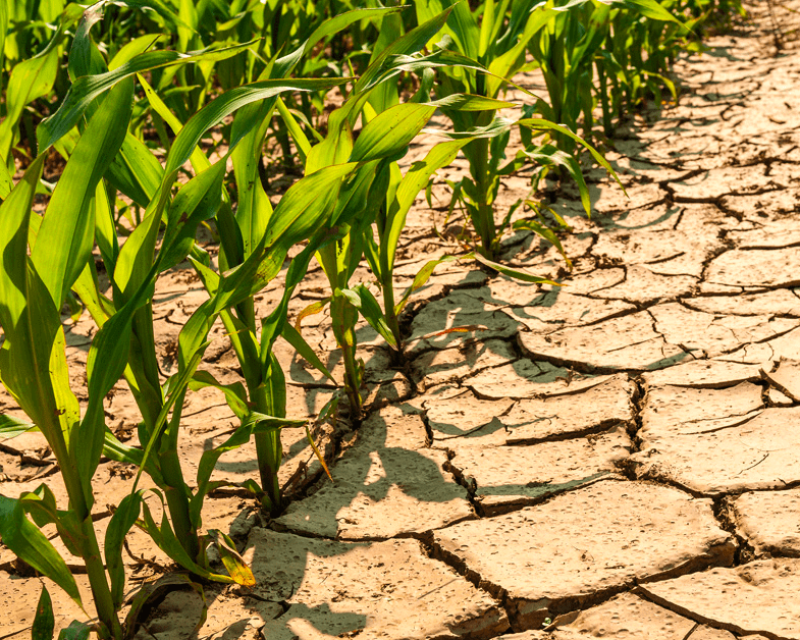Drought stress has been a long-time limitation to crop production that is being exacerbated by climate change and associated reductions in the availability of blue water resources for agriculture. Most existing food and industrial crops are susceptible to drought stress, which can cause a significant loss in crop yield. Therefore, our ability to develop more climate-resilient crops that are more heat and drought tolerant will become increasingly important in the near future.
…
With more and more genomics resources available for diverse plant lineages showing contrasting strategies and variation in drought avoidance or tolerance, systems biology, which features genome-scale analysis of molecules and their interactions, is becoming a popular approach to link genes to drought-avoidance or drought-tolerance traits.
Our knowledge about the genes associated with drought stress responses generated by systems biology research can inform the construction of libraries of biological parts for synthetic biology, which aims to design or re-design biological processes. Synthetic biology has great potential for creating genetically-modified plants with enhanced drought avoidance or tolerance.
…
This Research Topic has identified important candidate genes underpinning drought avoidance and tolerance through systems biology research and has also demonstrated the potential of synthetic biology and genetic engineering for increasing drought resistance in plants.
With genomics research shifting from genome-reading to genome-editing and rewriting, the knowledge generated in this Research Topic will facilitate future efforts in designing climate-resilient crops for reducing yield losses and expanding the production of food and bioenergy crops to marginal lands.































